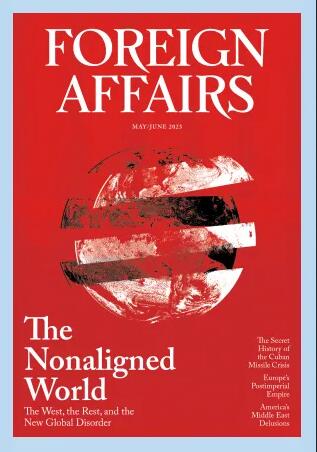Peculiarities of US foreign policy formation under the presidency of J. Baiden
IF 6.3
2区 社会学
Q1 INTERNATIONAL RELATIONS
引用次数: 0
Abstract
The article analyses foreign policy of J. Biden and stands out the differences with the previous president. It is proved, that J. Biden’s foreign policy differs from D. Trump’s foreign policy, although there are elements of continuity in it. Some US presidents, in particular A. Lincoln and B. Obama, chose political rivals to work in their administration. J. Biden selected former colleagues who have worked with him for many years. The Biden administration is expected to take a tougher stance towards Russia. US President J. Biden believes in countering aggression by the Russian Federation, including through sanctions. China is expected to become the main challenge for J. Biden’s foreign policy team, as relations between the US and the PRC sank to their lowest point in decades. It is predicted that J. Biden will pursue a more consistent policy towards China. It is also expected that J. Biden’s team will enlist the support of US allies to force Beijing to comply with international norms in a number of areas: in trade, in the relations of the central government with Hong Kong, in the actions of the fleet in the South China Sea, in the fight against coronavirus and in the field of human rights. At present, it remains unclear how the Biden administration will build relations with North Korea. It is expected to cooperate more closely with allies, as well as to exert economic pressure on China to help bring the DPRK to the negotiating table. The big question is whether the Biden administration will honour the March 2021 agreement between the United States and the Taliban and withdraw all American troops by September 11, 2021, without forcing the Taliban to fulfil commitments to reduce bloodshed and cut ties with the Al-Qaeda and other Islamist groups that may pose a threat to US interests. It is expected that the deployment of US troops in places such as Afghanistan and Syria, without a clear strategy, will end under the presidency of J. Biden. But such decisions will depend on military assessments and consultations with allies, which leaves the door open for continued American intervention.拜登总统任期内美国外交政策形成的特殊性
本文分析了拜登的外交政策,并指出了与前任总统的不同之处。事实证明,拜登的外交政策不同于特朗普的外交政策,尽管其中有连续性的因素。一些美国总统,特别是林肯和奥巴马,选择政治对手在他们的政府工作。拜登选择了与他共事多年的前同事。预计拜登政府将对俄罗斯采取更强硬的立场。美国总统拜登认为应对俄罗斯联邦的侵略,包括通过制裁。随着中美关系降至几十年来的最低点,中国预计将成为拜登外交政策团队面临的主要挑战。据预测,拜登将采取更加一贯性的对华政策。预计拜登的团队还将争取美国盟友的支持,迫使北京在多个领域遵守国际规范:贸易、中央政府与香港的关系、南海舰队的行动、抗击冠状病毒和人权领域。目前,拜登政府将如何与朝鲜建立关系尚不明朗。预计它将与盟国更密切地合作,并向中国施加经济压力,帮助将朝鲜带到谈判桌上。最大的问题是,拜登政府是否会遵守美国和塔利班在2021年3月达成的协议,在2021年9月11日之前撤出所有美军,同时不迫使塔利班履行减少流血事件的承诺,并切断与基地组织和其他可能对美国利益构成威胁的伊斯兰组织的联系。在没有明确战略的情况下,美军在阿富汗、叙利亚等地的部署预计将在拜登总统任期内结束。但这些决定将取决于军事评估和与盟友的磋商,这为美国继续干预留下了余地。
本文章由计算机程序翻译,如有差异,请以英文原文为准。
求助全文
约1分钟内获得全文
求助全文
来源期刊

Foreign Affairs
INTERNATIONAL RELATIONS-
CiteScore
4.80
自引率
0.00%
发文量
2
期刊介绍:
Founded in 1922, Foreign Affairs is a prominent American magazine that focuses on international relations and U.S. foreign policy. It is published by the Council on Foreign Relations, an esteemed nonpartisan think tank and membership organization dedicated to analyzing U.S. foreign policy and global affairs. While the print magazine is released every two months, the website offers daily articles and publishes anthologies every other month.
 求助内容:
求助内容: 应助结果提醒方式:
应助结果提醒方式:


